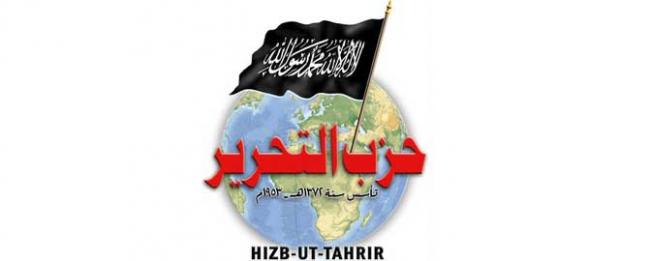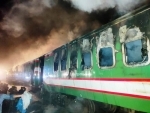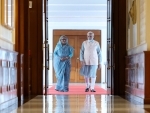Column

Bangladesh grapples with Hizb-ut-Tahrir (HuT) menace
According to him, Mahiuddin, a teacher of Arabic Studies in International Islamic University (IIU) located in Chittagong is the chief coordinator of the HuT network in Chittagong area. The university is virtually under control of Jamaat-e-Islami (JEI) and almost all teachers and non-teaching staff in IIU are either JEI leaders or workers or sympathizers.
JEI Central Committee member Mir Quasem Ali, who is now facing trial for war crimes committed in 1971, owns a number of houses in Chakbazar area adjoining IIU and most of the teachers and employees of IIU are staying there. Ali is also Country Director of Saudi based Rabeta-al-alam-al-Islami.
Recently lakhs of anti-Government leaflets and posters were circulated by HuT giving a call to the people to establish Islamic rule in the country by overthrowing the elected Government. These leaflets and posters termed Prime Minister Sheikh Hasina as an ‘agent of anti – Islamic forces like India and the US’.
On the occasion of first anniversary of the BDR mutiny (Feb 25, 2010), the HuT circulated leaflets in cantonment areas appealing to the army personnel to take up arms and rise in revolt to overthrow the Awami League led Government and establish Allah’s rule. These leaflets accused Sheikh Hasina of having staged the BDR mutiny to kill Army officers, adding that the mutiny was planned and executed by India in complicity with Awami League to weaken Bangladesh army and lower its resistance to Indian aggression. The objective was also to arouse camaraderie among army personnel and whip up their passion for revenge against the government.
When HuT was banned on October 22, 2009 the activists of UK chapter HuT held demonstrations in front of Bangladesh mission in UK. HuT is banned in more than 20 countries of the world for its links with Al Qaeda. Although Mahiuddin Ahmed, a teacher of Dhaka University’s Business Management Institute who headed HuT in Bangladesh, was arrested in October 2010, his followers are being secretly organized to join hands with JEI and its student organ Islami Chhatra Shibir (ICS) to destabilize the country. In its attempts to create large scale anarchy and lawlessness in the country the BNP-JEI Alliance is utilizing the HuT militants as its asset on the ground. HuT has a very active grass roots level network, thanks to the covert support and patronage extended to the organization when the BNP-JEI Alliance was in power.
In January 2012, Bangladesh army disclosed that it had foiled a plot by more than a dozen “religiously fanatic” officers to overthrow the democratically elected Government of Prime Minister Sheikh Hasina. “We have unearthed a heinous conspiracy to overthrow the democratic government through the army”, Army
spokesman Brig Gen Masud Razzaq said in a statement in Dhaka on January 19, 2012. “The attempt has been thwarted with the wholehearted efforts of army soldiers,” the statement said, adding that the plot had been fomented by Bangladeshi expatriates in touch with ‘religiously fanatic’ army officers. Giving details about the failed coup, which was unearthed in December 2011, Gen Razzaq said an officer of the rank of Major who was now on the run circulatedemails to different serving officers detailing a plan to overthrow the Government on January 9-10, 2012. HuT was directly involved in this attempt to overthrow the Government, the statement added. The plot involved up to 16 Islamist officers owing allegiance to HuT, raising fears about the prevalence of hardliners in the upper ranks of the country’s 140,000 strong Army.
The banned radical outfit HuT that enjoys covert patronage of BNP/JEI clique recently published and circulated a huge number of pamphlets in Dhaka, throwing an open challenge to the Government by announcing its decision to hold rallies and processions in Dhaka and across the country in support of its demand for introduction of ‘khelafat’ (caliphate) in the country. Posters visible at different strategic points and locations in Dhaka and its outskirts contained various calls including call for establishment of ‘khelafat’ by overthrowing the democratically elected Government. Saving the country’s independence and sovereignty, its natural gas and oil and creating powerful defence forces, free of the influence of the United States, the UK and India were among other demands on these pamphlets and posters.
HuT is a militant international organization originally set up in Jerusalem to fight for separate homeland for the Palestinians. It started its activities in Bangladesh in 2000. After being banned in Bangladesh, the UK chapter of HuT has been providing funds through many covert channels to sustain activities of its
Bangladesh counterpart.



